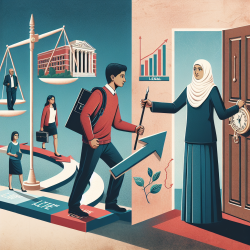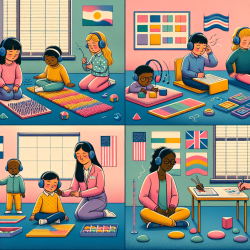Unlocking the Future: Navigating Transition Timelines with Ease
Transitioning from adolescence to adulthood is a pivotal time in any young person's life, and for young adults in special education, having a robust plan is crucial. Nebraska's Transition Timeline Checklist for IEP Teams is a valuable resource designed to guide educators, parents, and young adults through this significant phase. Here's a simplified look at how to use this checklist to ensure a smooth transition.
Getting Started: Ages 13-14
As early as age 13, it's important to introduce and discuss transition services during the IEP meeting. While transition activities are required to be incorporated into the IEP at age 14, starting earlier can be beneficial. At this stage, families should also be introduced to Nebraska VR, which offers support for employment preparation and retention for individuals with disabilities.
- Begin transition discussions at age 13.
- Introduce Nebraska VR for employment support.
- Consider Developmental Disabilities (DD) services if applicable.
Building Foundations: Ages 14-15
Transition planning becomes the cornerstone of the IEP from age 14. Annual transition assessments should be conducted to identify strengths, preferences, and needs. It's essential to involve the young adult in their IEP meetings, encouraging them to participate actively in discussions and planning.
- Conduct annual transition assessments.
- Invite young adults to participate in IEP meetings.
- Develop multi-year courses of study to align with post-secondary goals.
Expanding Independence: Ages 16-17
As young adults grow, so should their responsibilities. By age 16, consider unpaid work experiences or pre-vocational instruction to build employment skills. Encourage exploration of part-time jobs and summer employment. By age 17, continue to outline graduation plans and explore post-secondary education options.
- Consider work experiences to build skills.
- Explore part-time and summer job opportunities.
- Plan for graduation and post-secondary education.
Approaching Adulthood: Ages 18-19
As young adults approach the age of majority, it's crucial to address legal and financial changes. Re-evaluate Social Security Income (SSI) and Medicaid benefits, and understand the transfer of decision-making rights. This is also a time to focus on independent living skills and prepare for life beyond high school.
- Re-evaluate SSI and Medicaid benefits at age 18.
- Understand the transfer of decision-making rights at age 19.
- Continue to build independent living skills.
Completing the Journey: Age 21
By age 21, young adults who have continued in special education will complete their eligibility. It's vital to ensure that all necessary support services are in place to facilitate a smooth transition into adulthood. This includes planning for adult support services and confirming the completion of IEP goals.
- Ensure support services are ready post-graduation.
- Convey a signed, regular diploma upon completion of IEP goals.
- Align young adults with their cohort for alumni activities.
For more information, please follow this link.










